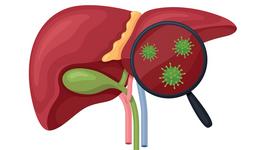Clinical Trial Roundup: Gene-Editing Therapies for Gastrointestinal Cancers
CMN Intelligence - The World’s Most Comprehensive Intelligence Platform for CRISPR-Genomic Medicine and Gene-Editing Clinical Development
Providing market intelligence, data infrastructure, analytics, and reporting services for the global gene-editing sector. Read more...
Gastrointestinal (GI) cancer emcompasses cancerous tumours in any part of the digestive tract and other abdominal organs, including the oesophagus, stomach, pancreas, small intestine, colon, rectum, and anus. Symptoms vary greatly depending on tumour location and stage of disease, and conventional treatments include a combination of surgery, chemotherapy, radiation therapy, immunotherapy and various targeted therapies.
In this clinical trial update, we look at the ongoing trials of gene-edited therapies for cancers of the GI tract.
P-MUC1C-ALLO1 - a pan-specific CAR-T cell candidate for solid cancer (Phase 1)
Poseida Therapeutics is developing the first pan-specific CAR-T cell candidate for solid cancer. P-MUC1C-ALLO1 is an allogeneic CAR-T cell therapy designed to target cancer cells expressing the Mucin1 cell surface associated C-Terminal (MUC1-C) antigen.
P-MUC1C-ALLO1 is edited using Cas-CLOVER technology, and encompassses genetic edits that eliminate or minimise host-vs-graft and graft-vs-host alloreactivity. The candidate is being evaluated in a Phase 1, open label, dose escalation and expanded cohort study in adults with a range of advanced or metastatic epithelial-derived solid tumours, including several GI cancers: colorectal cancer, pancreatic cancer, and gastric cancer. A number of patients have been dosed so far and recruitment is still ongoing.
The company shared clinical data from the P-MUC1C-ALLO1 trial in December 2022, which revealed that as of November 14th 2022, seven patients with epithelial-derived cancers, including oesophageal, colorectal, breast, pancreatic and prostate carcinomas, had been dosed with P-MUC1C-ALLO1, of which four patients were evaluable for response. This included a single pre-treated breast cancer patient who achieved a partial response and two patients with heavily pre-treated gastrointestinal tumours who achieved stable disease. The experimental therapy was safe and well-tolerated.
According to a company press release published in December 2022, Poseida believes that P-MUC1C-ALLO1 has the potential to treat a wide range of solid tumours derived from epithelial cells, including breast, ovarian, colorectal, lung, pancreatic and renal carcinomas, as well as other tumours that express a cancer-specific form of MUC1-C. Poseida previously demonstrated the elimination of tumour cells to undetectable levels in pre-clinical models of both breast and ovarian cancer. Read more about Poseida's unique approaches to gene editing, delivery and optimisation of allogeneic cell therapies in our interview with then CEO Eric Ostertag here.
CRISPR-edited checkpoint cell therapy for multiple gastrointestinal cancers (Phase 1/2)
New York-based Intima Bioscience is sponsoring a clinical trial that explores gene-edited immune checkpoint tumour infiltrating lympocyte (TIL) therapy for Stage IV metastatic GI cancers, including GI epithelial cancer, colorectal cancer, pancreatic cancer, gall bladder cancer, colon cancer, oesophageal cancer and stomach cancer. The experimental therapy is derived from patient cells (i.e. autologous).
A Phase 1/2 trial to evaluate the safety and efficacy of the candidate therapy is ongoing in adults with Stage IV metastatic GI cancer who have had at least one first line standard therapy and who are in reasonably good health. A total of 20 adult participants are expected to be enroled in this trial. The principle investigator is gastrointestinal oncologist Emil Lou (previously interviewed by CRISPR Medicine News) at the Masonic Cancer Center at the University of Minnesota (UMN).
The therapeutic candidate was developed following a research breakthrough by scientists at National Cancer Institute (NCI) and UMN in 2020, who found that CRISPR-Cas9-mediated inactivation of the cytokine-inducible SH2 (CISH) gene in TILs increased their capability to fight solid tumours. We previously described these findings in detail in an interview with Douglas Palmer (NCI), Beau Webber and Branden Moriarity (both UMN).
TILs are a naturally occurring subset of immune cells that migrate from blood into tumours. The idea behind the new therapy, which combines CRISPR and the principle of CAR T-cell therapy, is that CISH inactivation in TILs and other T cells will augment their natural ability to target and destroy solid tumours, opening up a new treatment avenue for solid tumours, which often respond poorly to CAR-T cell therapies.
The estimated primary completion date (the date on which the last participant is expected to receive treatment) for Intima Bioscience's trial is September 2024. Read more about the novel CISH-knockout TIL therapy in a previous clinical trial update here.
CTX131 – a CD-70 targeting CAR T therapy for multiple solid tumour types (Phase 1/2)
CRISPR Therapeutics is developing CTX131 for the treatment of GI cancers, specifically oesophageal carcinoma and pancreatic adenocarcinoma, as well as several other solid tumour types.
The company is currently sponsoring an open-label, multicenter, Phase 1/2 trial to evaluate the safety and efficacy of CTX131 in subjects with relapsed or refractory solid tumours. Recruitment is ongoing, for 250 adults with proven unresectable or metastatic, relapsed/refractory, clear cell renal cell carcinoma, cervical carcinoma, pancreatic adenocarcinoma, endometrial carcinoma and malignant pleural mesothelioma.
CTX131 is an allogeneic CAR-T cell therapy designed to target the cell-surface antigen CD70. The therapeutic candidate is developed using T cells from healthy donors that undergo several ex vivo CRISPR-Cas9 modifications to make the product suitable for off-the-shelf CAR-T cell therapy.
Firstly, CRISPR-Cas9 is used to engineer the CAR that allows the CTX131 cells to target and kill CD70-expressing cells. CRISPR-Cas9 is also used to insert the anti-CD70 CAR construct precisely into the TRAC locus. This move disrupts the native TCR, thus mitigating the risk of graft-vs-host disease (GVHD) that may otherwise result from histo-incompatibility between a donor and recipient. This edit also places the CAR under endogenous TCR regulation.
CRISPR-Cas9 is further used to eliminate the class I major histocompatibility complex (MHC I) expressed on the surface of the CTX131 cells. This edit alleviates the risk of the patient rejecting the CAR-T product via MHC I, thus increasing the likelihood of the therapy persisting in the patient’s blood. Finally, CTX131 also includes edits to the genes encoding Regnase-1 and TGFBRII, which have been demonstrated to increase the potency of the CAR T cells in pre-clinical studies.
In a business update published earlier this year, CRISPR Therapeutics reported that it had received IND clearance from the FDA in February 2023 to initiate a clinical trial for CTX131.
FT536 - a CAR natural killer cell therapy candidate (Phase 1)
Fate Therapeutics announced in January 2022 that the FDA had approved its IND application for FT536 to enter a Phase 1 clinical trial for advanced solid tumours. According to a press release published at that time, the company revealed plans to initiate a trial for FT536 as mono- and combination therapy along with tumour-targeting monoclonal antibody therapy for the treatment of multiple solid tumour indications.
FT536 is designed as a first-in-class, off-the-shelf, CAR natural killer (NK) cell product candidate. It is derived from a clonal master induced pluripotent stem cell line that undergoes multiple gene-editing steps with an undisclosed gene-editing modality, including the incorporation of a unique CAR that targets MICA and MICB, immune-activating stress proteins that are abundantly expressed by many solid and haematopoeitic tumour types, and which can be bound by NK cells and CD8+ T cells to activate a potent cytotoxic response.
FT536 also harbours a so-called ‘Universal Secondary Engager’, which is a modified CD16 receptor that is engineered to prevent its down-regulation and to enhance its binding to tumour-targeting antibodies. Additional edits include the addition of an IL-15 receptor fusion that augments NK cell activity as well as knockout of the CD38 gene, which promotes cell persistence and function in the hostile tumour microenvironment.
FT536 is now being evaluated in a Phase 1 dose-finding study with five enroled participants, where it is given in combination with a monoclonal antibody following lymphodepletion in participants with colorectal cancer, pancreatic cancer and gastrooesophageal cancer, as well non-small cell lung cancer, breast cancer, ovarian cancer and head and neck cancer. The study consists of a dose-escalation stage and an expansion stage where participants will be enroled into indication-specific cohorts.
The estimated primary completion date for the FT536 trial is June 2024. The off-the-shelf treatment regimen is designed to be administered in the outpatient setting. You can read more about the therapeutic strategy and research supporting FT536 here.
PD-1 knockout T cells for advanced hepatocellular carcinoma (Phase 1)
Central South University (China) is sponsoring a Phase 1 trial for PD-1 knockout engineered T cells in combination with transcatheter arterial chemoembolization (TACE) in patients with advanced hepatocellular carcinoma (HCC). The experimental T cells are patient-derived (autologous) and CRISPR-edited to knock out the checkpoint inhibitor PD-1.
HCC is the most prevalent type of primary liver cancer and occurs most often in individuals with pre-existing liver disease, e.g., cirrhosis caused by hepatitis B/C viral infection. TACE is a minimally invasive, targeted treatment for some advanced liver tumours that are not suitable for surgical removal. Here, a catheter is threaded through an artery in the groin to the site of the tumour. The hepatic artery's blood supply to the tumour is then blocked, and chemotherapeutic drugs are dispensed to the tumour through the catheter.
The trial seeks to enrol ten adult participants who will receive one TACE treatment followed by three cycles of PD-1-edited T cells by percutaneous infusion in the peripheral of the tumour every four weeks. The safety and clinical efficacy of the experimental therapy will be evaluated. The estimated primary completion date is December 2024.
CRISPR-edited TILs to treat several GI and other solid tumour types (Phase 1)
The Second Affiliated Hospital of Guangzhou Medical University (China) is sponsoring a Phase 1 trial for patient-derived TILs that have been CRISPR-Cas9-edited to knock out PD-1 and express single-chain variable fragments (scFvs, a type of recombinant antibody) against both PD-1 and the immune checkpoint protein CTALA4 as well as CARs against various antigens, including HER2, Mesothelin, PSCA, MUC1, Lewis-Y, GPC3, AXL, EGFR, Claudin18.2/6, ROR1, GD1 or B7-H3.
The therapeutic cells will be transfused into 40 adult patients with advanced cancer that have failed to respond or maintain a response to other therapies, including liver, colorectal, lung, breast, brain or other solid cancer types. The trial, which is currently recruiting, will evaluate the safety, tolerance, and preliminary clinical efficacy of the experimental therapy. The estimated primary completion date is December 2025.
We will provide further updates on all of the trials covered here as they emerge.
For a complete overview of CRISPR IND approvals and ongoing gene-editing clinical trials, check out CRISPR Medicine News' Clinical Trials Database.
To get more CRISPR Medicine News delivered to your inbox, sign up to the free weekly CMN Newsletter here.
Tags
ArticleNewsClinical News UpdatesAdvanced Hepatocellular Carcinoma, HCCCancerEsophageal CancerGastro-Intestinal Cancer, GIMultiple Solid Tumor AdultSolid Tumor AdultSolid TumoursCentral South UniversityCRISPR Therapeutics AGFate Therapeutics, Inc.Intima Bioscience, Inc.Poseida Therapeutics
CLINICAL TRIALS
Sponsors:
Base Therapeutics (Shanghai) Co., Ltd.
Sponsors:
Base Therapeutics (Shanghai) Co., Ltd.







